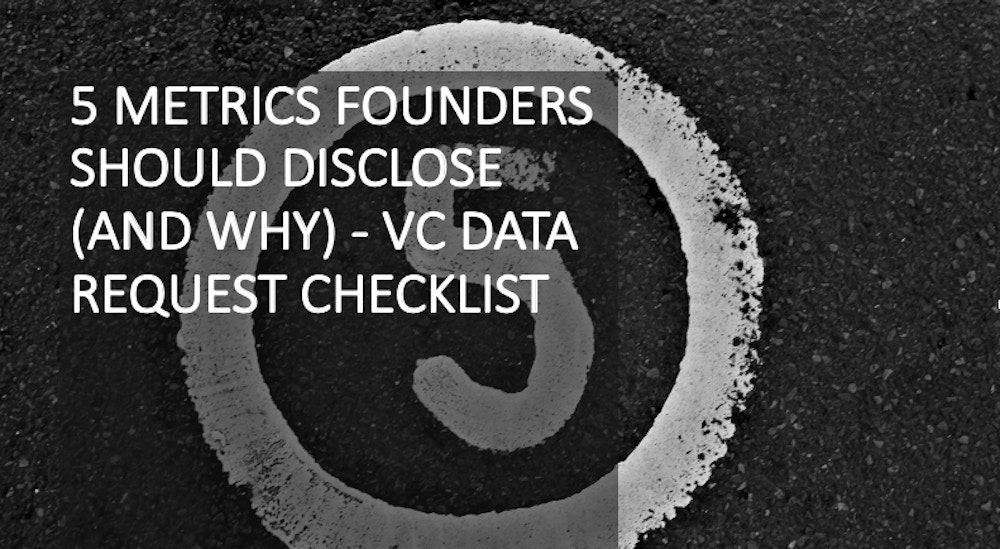By Tomy Han
COVID-19 has shifted the way we all work, and for Volition, which places a core emphasis on building relationships with management teams and founders, not being able to meet in person has no doubt been a hurdle we’re learning to overcome. Surprisingly, data exchanges are now playing an increasingly large role in helping us build early relationships and push conversations forward as we get to know founders in this new virtual world.
In our experience, many founders fear that an overemphasis on data can turn into a binary quantitative analysis where they merely throw out their financials and cross their fingers for funding. With Volition, at least, the diligence process is much more than this. That’s why members of our investment team often like to compare the diligence process to building a fighter jet: your assessments and designs must be informed by data, but much of it is intimately handcrafted and assembled.
Similarly, Volition Capital makes a point of being very hands-on. Our diligence process values product, team, market, and chemistry — even as we use data to validate our assessments. We invest in people. Data requests are a part of our diligence process, but they aren’t the hands that build the jet so to speak. However, they do tend to be one of the quicker items that we can tackle as we get to know each other and spend time together. They also save entrepreneurs a lot of time, as we can do much of the work ourselves.
Yet many founders simply don’t know what data items to disclose. That’s why we decided to break down what a common data request looks like and the rationale behind it.
1. Historical Monthly or Quarterly Financials (24+ months at least)
For high growth companies, given they are changing so quickly and moving at a rapid rate, monthly financials are much more helpful in giving us an appreciation of the mechanics of a business. It is not uncommon for companies to not have audited financials or GAAP financials available, and that is totally okay with us. We are used to working with bootstrapped businesses and understand cash-based accounting is sometimes more pragmatic: being bootstrapped, the resources and time to build a finance function may not be there. While some investors don’t like this – we are very comfortable. If financials are available with opex broken down between S&M, R&D, G&A, even better.
2. Historical Revenue By Customer By Month (24+ months at least)
There are two things that are important for this metric if possible: 1) getting it on an accrual basis; and 2) getting this over a period of 24+ months. If an accrual basis is not available, a historical list of contracts (including those that may not have renewed), ACV, start and expiring dates work as well. For SaaS companies that have implementation fees, we encourage to only record recurring revenue for this request. This helps us understand the historical trajectory of everything from number of customers, churn, retention, upsell, customer concentration, etc. Instead of asking each item 1 by 1, this tends to save a lot of time and helps us really live and breathe the business.
3. Existing Sales Deck and Marketing Material
We invest at a stage when product and market fit is established. We spend a good chunk of our efforts post-investment helping our portfolio companies build out a scalable S&M function. As such, understanding how the product is positioned and sold, what resonates with prospects, and how ROI is communicated to prospects are all key pieces that we need a full appreciation of to ensure we are the right value-add partners for the management team. How you package this information doesn’t matter: send us whatever you have.
4. Operating Model and Financial Forecast
These give us a window into how management is viewing the building blocks of the business going forward. They are also a great asset that can help spark a strategic conversation around the growth of the business, investment, philosophical alignment, etc. Our decades of experience evaluating and working alongside growth-oriented businesses will allow us to take the operating model and financial forecast and isolate specific areas we can add value in the near term post-investment.
5. Management’s Operating Dashboard or KPIs
A big part of due diligence is getting ourselves to a point where we can view the business through the eyes of the management team. While the KPIs themselves are important, they help us understand the strengths and weaknesses of the organization from an operational perspective. They also facilitate well-informed discussions around areas of improvement and how Volition can leverage its expertise and network to continue to foster sustainable growth post-investment. We don’t expect any fancy software systems for bootstrapped operations; just give us what you have and we will do the rest.
Crafting the Jet: Wholistic Diligence
While diligence is about getting to an investment decision, it is also just as much about planning next steps with management, candidly assessing the strengths and weaknesses of the business, and making sure we can align on near-term and long-term goals post-investment.
This process is not a sterile number crunch; we make a point of spending as much time as we can with the management team throughout, but as we’ve all had to adapt to a remote environment, data can actually play an early relationship-building role. If we are going to build a jet and have it truly take off, we need to test performance data while also getting our hands dirty by working collaboratively. While we absolutely aspire for all our portfolio companies to be high flyers, we also ensure that our fundamentals are sound. This means that, unlike other firms, we don’t bake crash-and-burn into our portfolio; we believe in all our companies, and we use our diligence process and data requests to understand their potential and help them get airborne.
Sign up for our mailing list to get Volition Viewpoints in your inbox:
Meet the Author:

TOMY HAN
Principal
Tomy joined Volition Capital in 2012 as part of the first Analyst class. He focuses on software and internet investments in compliance, security, supply chain, and vertical applications.
Tomy serves on the board of directors of Pramata, and his current and former board observer roles include Assent Compliance, Insite Software, RTS, and Securonix. Additionally, he has investment experience on the following current and former Volition Portfolio Companies:
Connect with Tomy:

